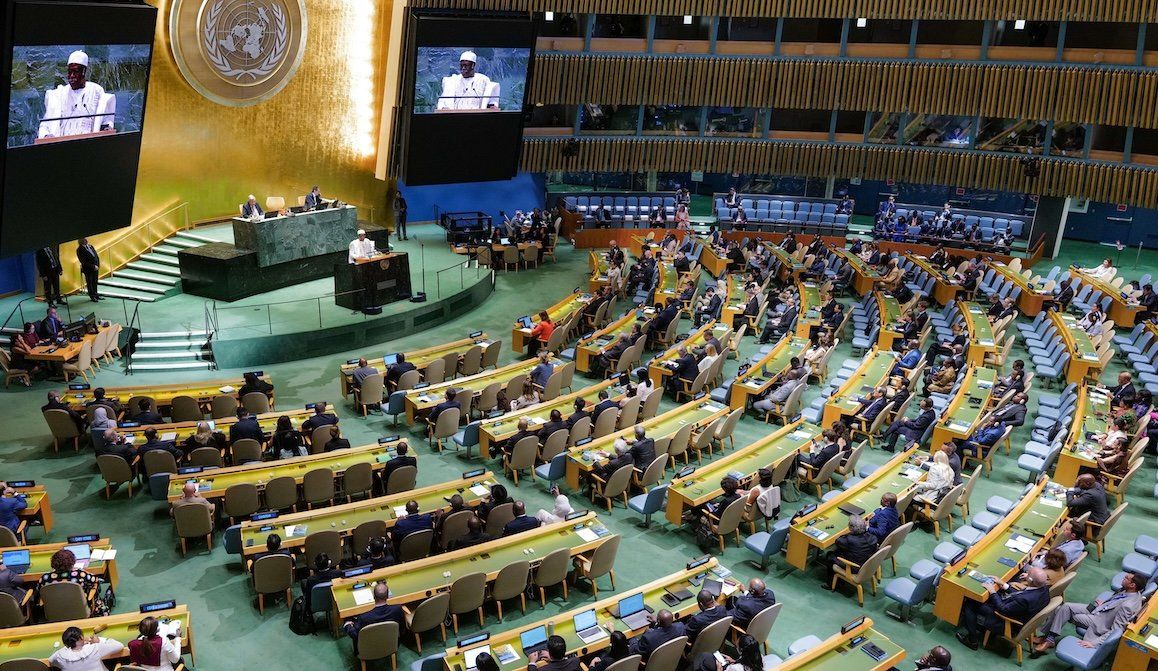Every September, world leaders travel to UN headquarters in New York City for the start of the annual UNGA session.
UNGA — also known as the United Nations General Assembly — is the primary deliberative and policymaking body of the UN. In simpler terms, it’s a forum where the UN’s 193 member states gather to debate global problems and work toward solutions (with varying levels of success).
GZERO will be on the ground at UNGA, providing coverage on high-level meetings and big speeches from leaders set to begin on Sept. 24. We’ll also be giving you an inside look at the Summit of the Future — set for Sept. 22 and 23 — which UN Secretary-General António Guterres says is a once-in-a-generation chance to create more effective and inclusive institutions.
The general debate of UNGA — the high-profile gathering of world leaders — always has a theme. This year’s is: “Leaving no one behind: acting together for the advancement of peace, sustainable development and human dignity for present and future generations.”
A rocky time for the world and the UN. The 79th session of UNGA comes at a precarious moment for the world, with major conflicts in multiple countries, democracy on the decline around the globe, and rising tensions between major powers.
As world leaders gather in New York, the wars raging in Ukraine, Gaza, and Sudan will be major topics, as will issues ranging from climate change to nuclear disarmament.
The UN has often appeared powerless in the face of such crises. The beginning of this year’s session offers an important opportunity for the UN to chart a new way forward and challenge critics who feel it’s a bloated, self-important, impotent institution. Along these lines, one of the issues on the agenda is whether to reform the UN Security Council — a key body focused on preserving peace around the world. This could include adding African countries as permanent members to the council.
There are currently five permanent members with veto power: Russia, China, France, the US, and Britain. The US has expressed support for expanding permanent membership to two African countries, and another seat to be rotated among small island developing states, but is opposed to offering any other countries veto power. The veto-wielding permanent members often use this power to block resolutions that are unfavorable to them or their allies.
As the debate over this develops in the days ahead, keep an eye out for our coverage. In the meantime, check out Ian Bremmer’s recent interview with Palestine’s Permanent Observer to the UN, Riyad Mansour, which dives into the challenges of representing Palestinians at the UN — a topic that we’ll also be watching closely at UNGA.
Palestinians have been given a seat among members at UNGA
for the first time this year thanks to a resolution that passed in May granting Palestine “new rights and privileges.” That said, Palestine does not have a vote — it remains a non-member observer state and continues to push for full membership.
